Search Results for ""

Discussing the accessibility of medicines in Georgia
In June, within the initiative, Curatio International Foundation held a workshop to discuss the accessibility of medicines in Georgia. Representatives of more than 20 interested organizations, including civil society, media, and academy, we discussed an important challenge of the pharmaceutical industry, which makes it difficult for the population to get access to medicines.
Terms of Use
Terms of Use Agreement Between User and Curatio International Foundation The Curatio International Foundation Web Site is comprised of various Web pages operated by Curatio International Foundation. The Curatio International Foundation Web Site is offered to you conditioned on your…
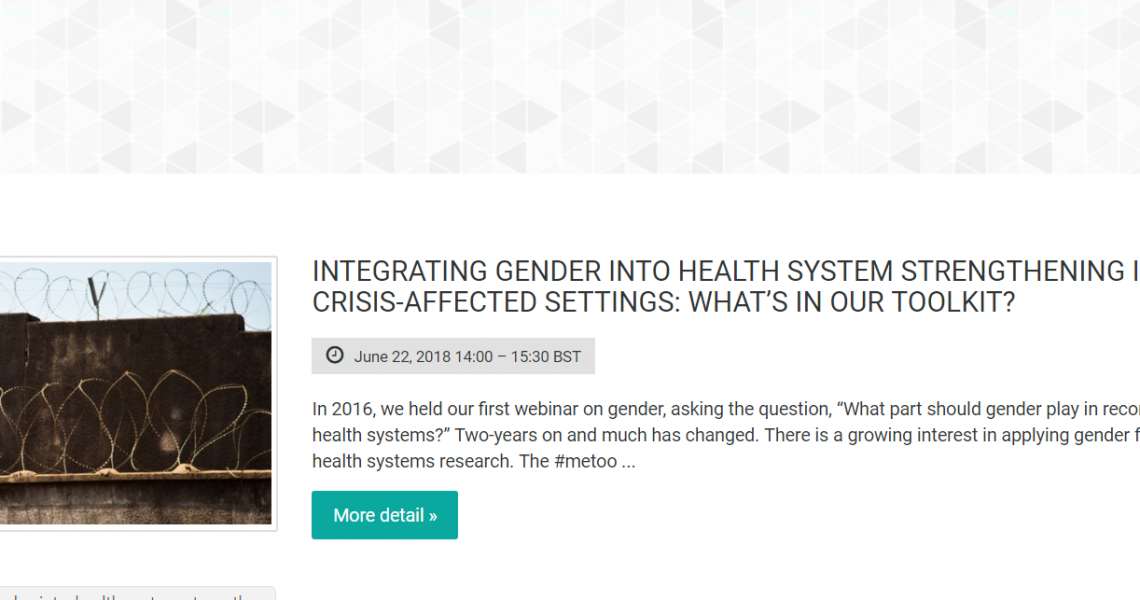
Webinar: Integrating gender into health system strengthening in conflict and crisis-affected settings; what’s in our toolkit?
Webinar describes how the process of focusing on gender has unfolded in different settings and share a range of tools that interested researchers, policymakers, and practitioners could use and adapt to stimulate progress towards gender equity.
CIF Privacy Statement
CIF Privacy Statement Protecting your privacy The General Data Protection Regulation (GDPR) (Regulation (EU) 2016/679) requires all organisations within the EU who process Personal Data to be transparent on how, why and what data is captured, stored and processed; the…
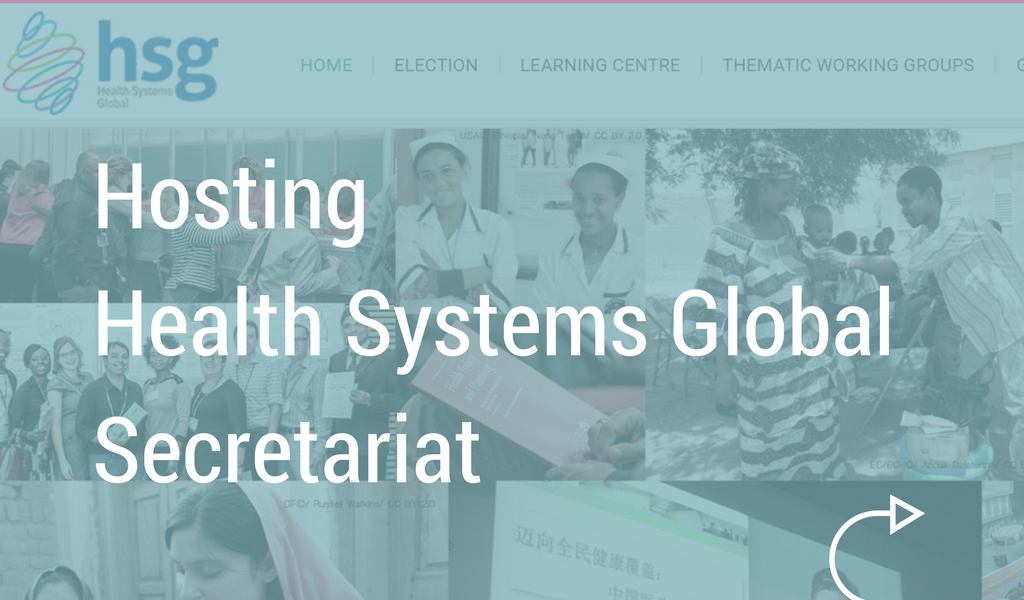
Hosting Health Systems Global Secretariat
Starting from March 1st, 2015 Curatio International Foundation hosts the HSG secretariat, which was previously housed in the Center for Health and Infectious Disease Research at the University of Copenhagen.
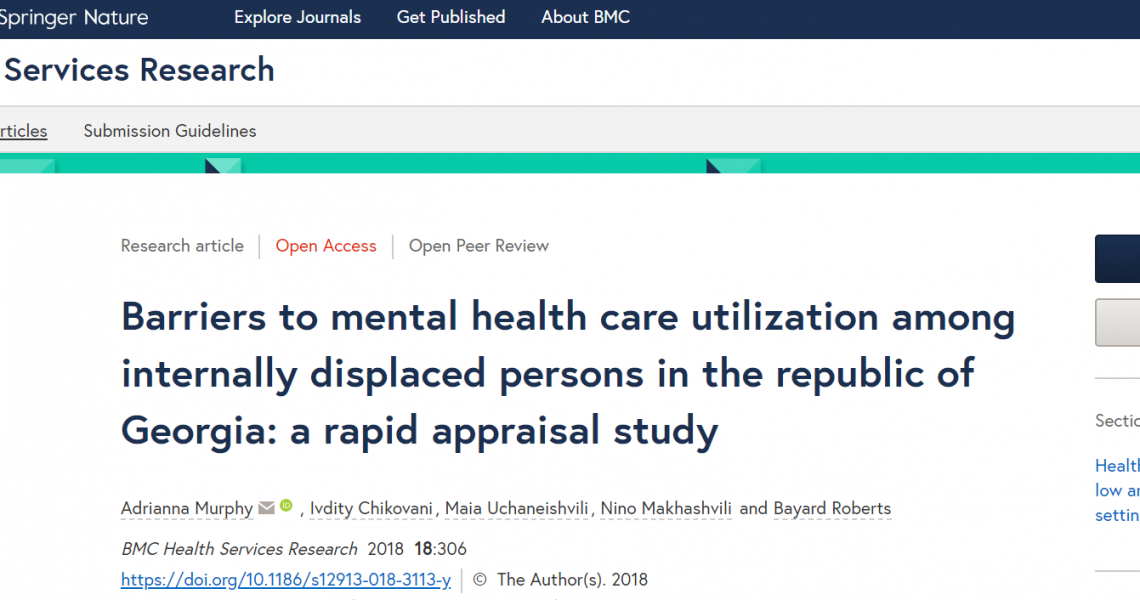
Article: Barriers to mental health care utilization among internally displaced persons in the republic of Georgia: a rapid appraisal study
The new paper identifies the health system barriers leading to low rates of utilization of mental health services among internally displaced people (IDP) with mental disorders. The paper was published in BMC Health Services Research authored by Adrianna Murphy, Ivdity Chikovani, Maia Uchaneishvili, Nino Makhashvili and Bayard Roberts.
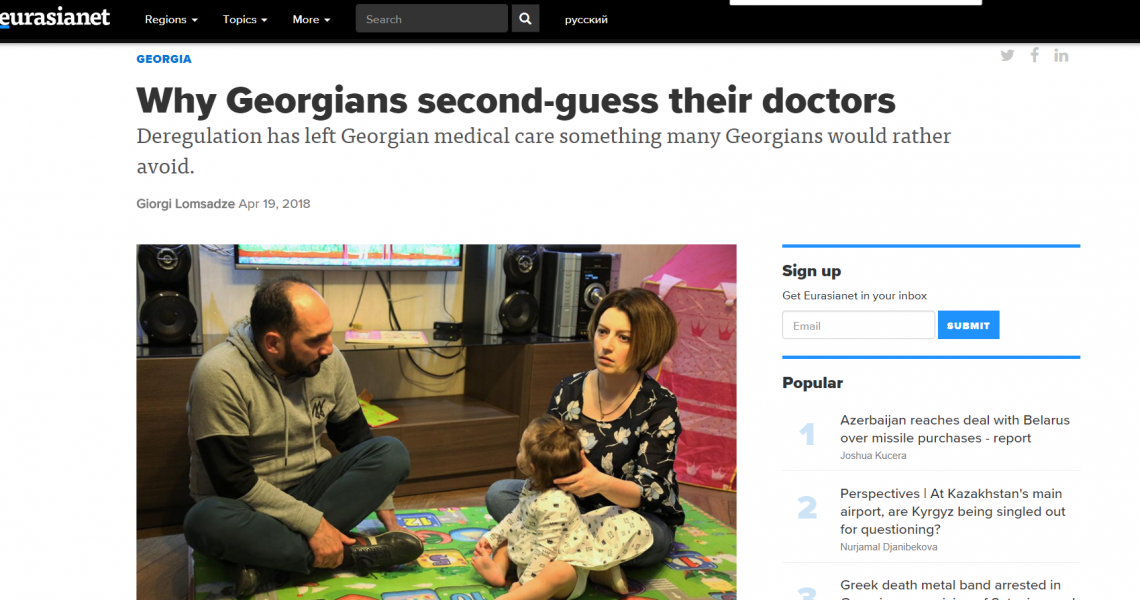
Why Georgians second-guess their doctors – Deregulation has left Georgian medical care something many Georgians would rather avoid
Lapses in education and deregulation may, at least partly, explain the frequency of medical errors, suggests Giorgi Gotsadze, the president of the Curatio International Foundation, a healthcare think-tank based in Tbilisi.

Ara Srinagesh from New York University Shares her Internship Experience
Ara Srinagesh was an intern at CIF from New York University. Aradhana is a master degree student of Public Health in Health Promotion & Disease Prevention and Outcomes. During the Winter Internship program, Ara worked on HIV Prevention and Risk Behavior among Key Populations in Georgia. In the short video interview, Aradhana described why and how she applied for our winter internship program, and shared her plans for her future carrier.
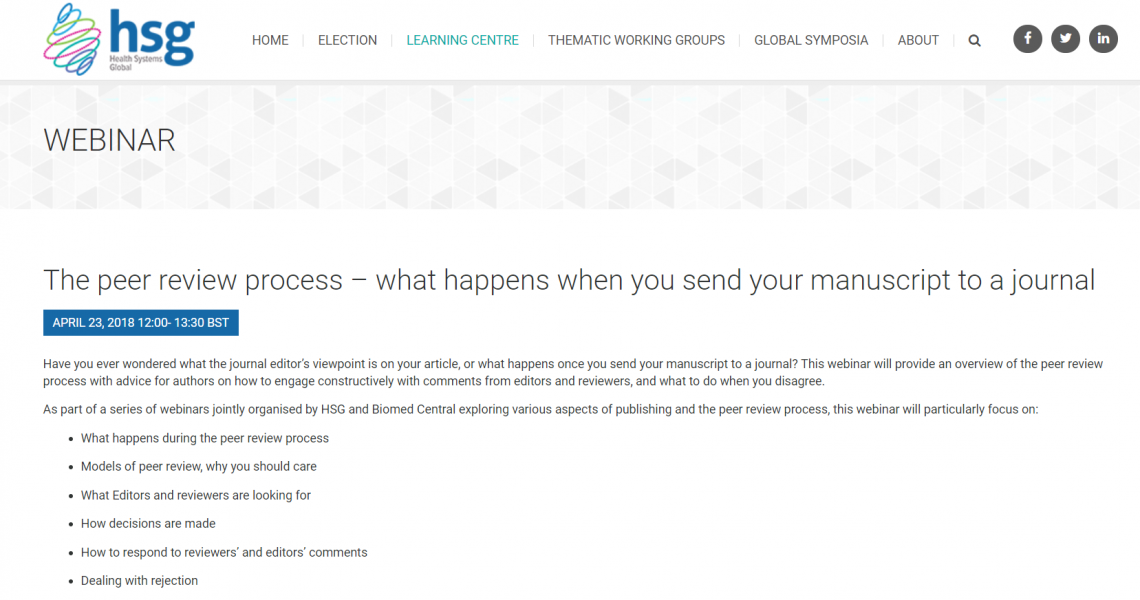
Webinar on The peer review process – what happens when you send your manuscript to a journal
Have you ever wondered what the journal editor’s viewpoint is on your article, or what happens once you send your manuscript to a journal? This webinar will provide an overview of the peer review process with advice for authors on how to engage constructively with comments from editors and reviewers, and what to do when you disagree.
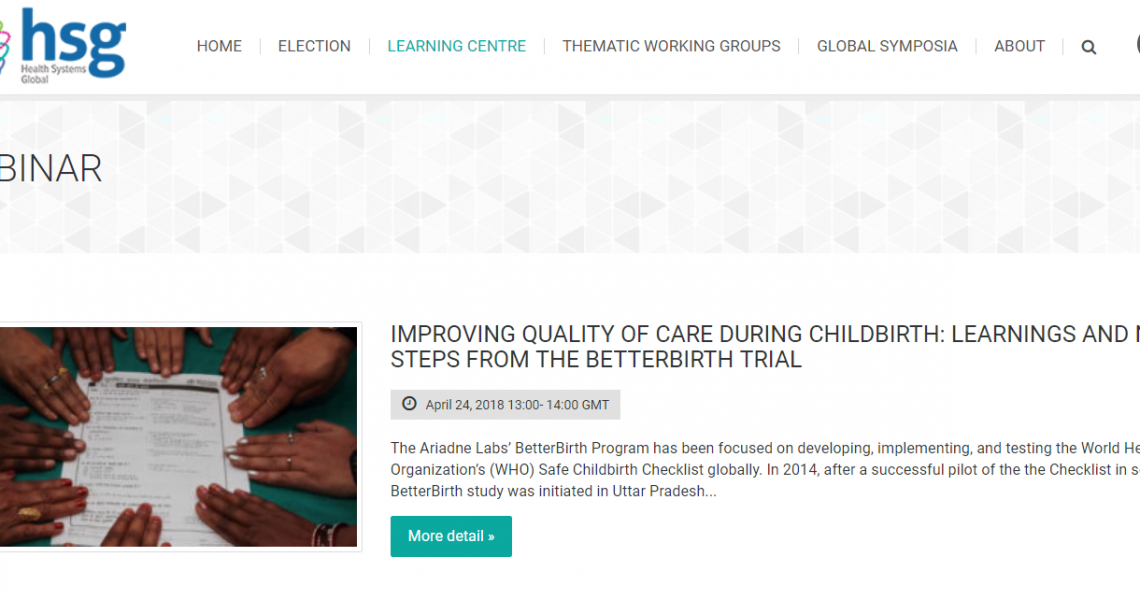
Webinar on Improving Quality of Care during Childbirth: Learnings and Next Steps from the BetterBirth Trial
Join the webinar organized by Health Systems Global. During this webinar, Katherine Semaru will discuss the lessons learned from the BetterBirth trial towards the increase of quality of maternal and newborn care, and the work still needed to reduce maternal and neonatal morbidity and mortality.
